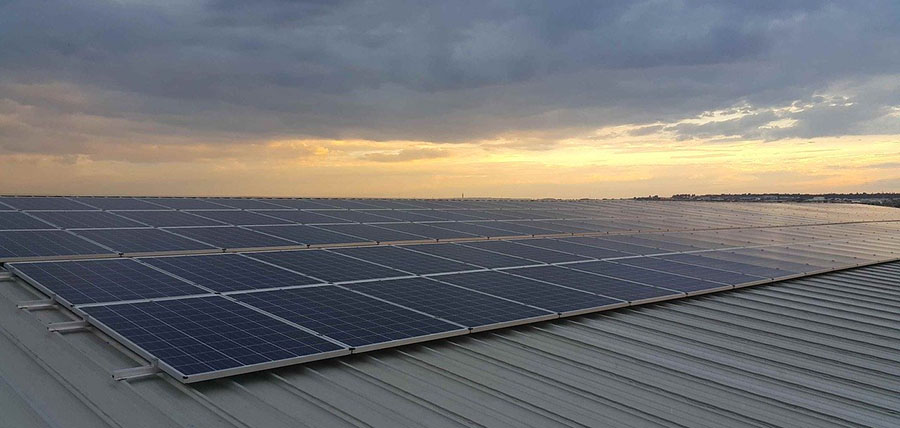Winners and Losers Emerge for Renewable Energy in 2012
Source: Platts (12/27/11)
"Wind turbine makers, solar panel manufacturers, biomass pellet producers and other supply-chain companies, along with project developers, have shared in the good times, with plenty of prosperity to go around."
The sorting out has begun for the renewables industry, with some companies thriving while others fall by the wayside. At the same time, renewable energy is gaining in competition with nuclear power but faces tough challenges from natural gas.
Renewable energy over the past decade has enjoyed phenomenal success, with sectors like wind and solar power expanding installed capacity at rates of 30–50% each year.
Wind turbine makers, solar panel manufacturers, biomass pellet producers and other supply-chain companies, along with project developers, have shared in the good times, with plenty of prosperity to go around.
Renewables have been developed in major industrial countries like Germany, Japan and the United States as part of the larger energy mix, with some serving as a variable-output complement to such baseload power sources as natural gas.
But heading into 2012, renewable energy is entering a new phase, with winners and losers emerging both within renewable energy sectors and as part of larger energy markets. Renewables are no longer just one energy source among many but in some markets are a direct competitor with fossil fuels.
Renewable energy, bolstered by long-term government support policies in many countries eager to promote shifts to clean energy, has weathered tough economic times and volatile financing markets since the worldwide economic recession hit in the fall of 2008.
Some renewables sectors appear poised for continued success, though the ongoing global financial crisis and widespread government budget cut that have followed, will cast a pall over the industry.
"The renewables industry is like the rest of the economy. It will definitely feel the effects of austerity," energy analyst Daniel Yergin, chairman of Cambridge Energy Research Associates, told Platts on December 2. "The economic crisis has put pressure on national budgets. One challenge will be the cost structure of renewables, the incentives."
Some observers offered an upbeat assessment for the renewables industry in the coming year. "Despite the current situation, the general sense is that renewables are still doing pretty well," IHS Senior Analyst Marianne Boust said in an interview. "Projects are still getting built. But there are regional discrepancies."
Some mature markets, like those in the European Union, continue to grow, fueled by policies requiring EU member states to secure a set amount of their energy from renewable resources by 2020. The targets differ from country to country, but "the overall support is there," Boust said.
Even EU members with shaky economies like Greece, Ireland, Italy and Portugal will maintain their support for renewables, Boust predicted. Indeed, Greek policymakers view renewable energy as an important source of jobs and economic development amid a slumping economy, she said.
Along with steady growth in European renewable strongholds like Germany, new markets are opening in east Europe and Central Asia. Wind power capacity could expand 400–600 MW annually in countries like Poland, Romania and Turkey, IHS analyst Marc Muhlenbach said.
In contrast, the U.S. renewables market is stalled, particularly the wind-power industry, and could spiral downward in 2012, analysts cautioned. The key federal renewables policy, the Production Tax Credit providing an inflation-adjusted $0.019 tax credit for electricity generated from renewable sources, is set to expire at the end of 2012.
With cost-cutting high on the agenda of many U.S. federal lawmakers, the PTC might not be renewed, which could send the nation's renewables development, particularly wind-farm construction, into a tailspin. This would continue the boom-and-bust cycle that has plagued the U.S. wind industry for years as Congress periodically allows the PTC to expire, only to renew it after U.S. wind power development sputters and halts.
"Six months ago, we wouldn't have doubted it would be extended," Boust said. "Now we're not so sure." Legislation is being considered in Congress to extend the PTC, but the bill had failed to pass at press time.
Without a broad federal renewables policy, the U.S. industry relies on state renewable portfolio standards requiring electricity retailers to obtain a portion of their power from renewable energy. Yet as a September analysis by Standard & Poor's noted, "many utilities in the western U.S. have made rapid progress toward meeting their near-term RPS goals," and further wind energy expansion is expected to slow as a result.
"This dynamic, if combined with the potential expiration of the wind PTC at the end of 2012, may result in a sharp decline in wind project development," according to the study, Regulatory And Political Headwinds May Slow Renewable Energy Growth.
Wind project activity and orders for 2013 and beyond "are scant because of the lack of a predictable business environment, causing layoffs and even bankruptcies in American manufacturing plants and the supply chain," the American Wind Energy Association warned. "These struggles for U.S. wind manufacturers will only worsen if Congress were to allow the tax credit to expire."
As a result, the U.S. wind energy industry, once the world leader, now ranks No. 2 in installed capacity behind China. Like other Asian countries, China has emerged as a key center for renewables generation capacity and technology manufacturing—though warning signs are flashing for the booming Chinese market. Opposition to wind farm construction continues in some countries, fueled by continuing claims that wind turbines create health problems for nearby residents.
Platts
Renewable energy over the past decade has enjoyed phenomenal success, with sectors like wind and solar power expanding installed capacity at rates of 30–50% each year.
Wind turbine makers, solar panel manufacturers, biomass pellet producers and other supply-chain companies, along with project developers, have shared in the good times, with plenty of prosperity to go around.
Renewables have been developed in major industrial countries like Germany, Japan and the United States as part of the larger energy mix, with some serving as a variable-output complement to such baseload power sources as natural gas.
But heading into 2012, renewable energy is entering a new phase, with winners and losers emerging both within renewable energy sectors and as part of larger energy markets. Renewables are no longer just one energy source among many but in some markets are a direct competitor with fossil fuels.
Renewable energy, bolstered by long-term government support policies in many countries eager to promote shifts to clean energy, has weathered tough economic times and volatile financing markets since the worldwide economic recession hit in the fall of 2008.
Some renewables sectors appear poised for continued success, though the ongoing global financial crisis and widespread government budget cut that have followed, will cast a pall over the industry.
"The renewables industry is like the rest of the economy. It will definitely feel the effects of austerity," energy analyst Daniel Yergin, chairman of Cambridge Energy Research Associates, told Platts on December 2. "The economic crisis has put pressure on national budgets. One challenge will be the cost structure of renewables, the incentives."
Some observers offered an upbeat assessment for the renewables industry in the coming year. "Despite the current situation, the general sense is that renewables are still doing pretty well," IHS Senior Analyst Marianne Boust said in an interview. "Projects are still getting built. But there are regional discrepancies."
Some mature markets, like those in the European Union, continue to grow, fueled by policies requiring EU member states to secure a set amount of their energy from renewable resources by 2020. The targets differ from country to country, but "the overall support is there," Boust said.
Even EU members with shaky economies like Greece, Ireland, Italy and Portugal will maintain their support for renewables, Boust predicted. Indeed, Greek policymakers view renewable energy as an important source of jobs and economic development amid a slumping economy, she said.
Along with steady growth in European renewable strongholds like Germany, new markets are opening in east Europe and Central Asia. Wind power capacity could expand 400–600 MW annually in countries like Poland, Romania and Turkey, IHS analyst Marc Muhlenbach said.
In contrast, the U.S. renewables market is stalled, particularly the wind-power industry, and could spiral downward in 2012, analysts cautioned. The key federal renewables policy, the Production Tax Credit providing an inflation-adjusted $0.019 tax credit for electricity generated from renewable sources, is set to expire at the end of 2012.
With cost-cutting high on the agenda of many U.S. federal lawmakers, the PTC might not be renewed, which could send the nation's renewables development, particularly wind-farm construction, into a tailspin. This would continue the boom-and-bust cycle that has plagued the U.S. wind industry for years as Congress periodically allows the PTC to expire, only to renew it after U.S. wind power development sputters and halts.
"Six months ago, we wouldn't have doubted it would be extended," Boust said. "Now we're not so sure." Legislation is being considered in Congress to extend the PTC, but the bill had failed to pass at press time.
Without a broad federal renewables policy, the U.S. industry relies on state renewable portfolio standards requiring electricity retailers to obtain a portion of their power from renewable energy. Yet as a September analysis by Standard & Poor's noted, "many utilities in the western U.S. have made rapid progress toward meeting their near-term RPS goals," and further wind energy expansion is expected to slow as a result.
"This dynamic, if combined with the potential expiration of the wind PTC at the end of 2012, may result in a sharp decline in wind project development," according to the study, Regulatory And Political Headwinds May Slow Renewable Energy Growth.
Wind project activity and orders for 2013 and beyond "are scant because of the lack of a predictable business environment, causing layoffs and even bankruptcies in American manufacturing plants and the supply chain," the American Wind Energy Association warned. "These struggles for U.S. wind manufacturers will only worsen if Congress were to allow the tax credit to expire."
As a result, the U.S. wind energy industry, once the world leader, now ranks No. 2 in installed capacity behind China. Like other Asian countries, China has emerged as a key center for renewables generation capacity and technology manufacturing—though warning signs are flashing for the booming Chinese market. Opposition to wind farm construction continues in some countries, fueled by continuing claims that wind turbines create health problems for nearby residents.
Platts



























































